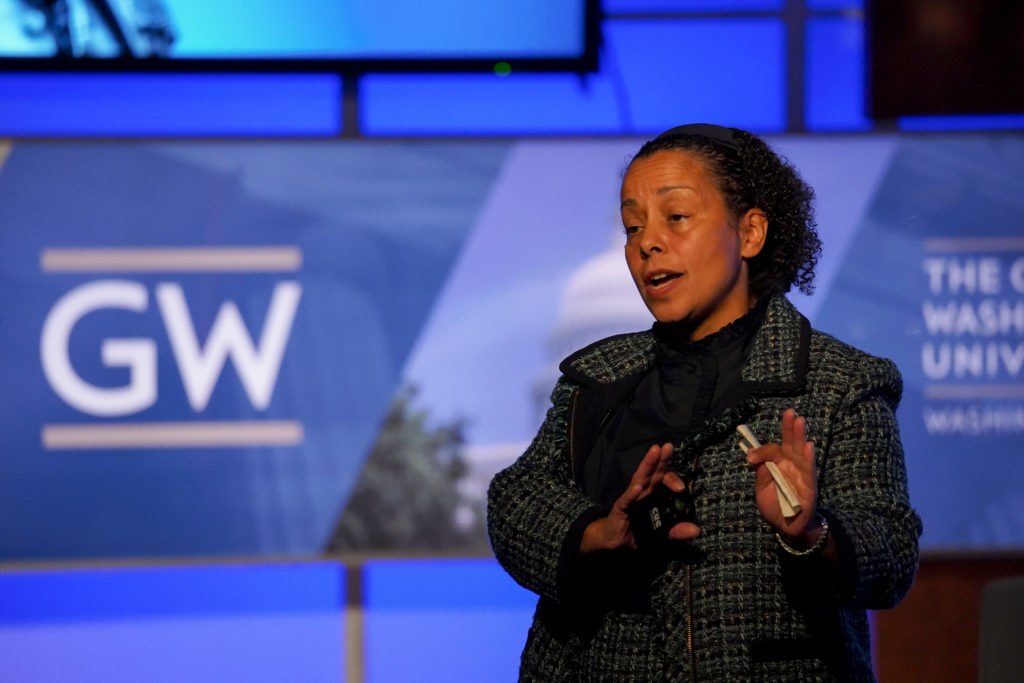A pioneering retired Navy officer discussed methods to promote gender equality in the military and in national security professions at the Jack Morton Auditorium Tuesday.
Michelle Howard, the first woman to become a four-star admiral in the U.S. Navy, discussed the need to create a strategy to connect federal gender equality programs to generate a broader impact. The event, part of the Elliott School of International Affairs’ Shapiro Lecture Series, was moderated by Shirley Graham, the director of the Elliott School’s Gender Equality Initiative.
Howard said the White House and government agencies like the Department of State, Agency for International Development and Peace Corps have introduced programs to promote gender equality. But nobody has been tasked with overseeing and coordinating the gender equality efforts, she said.
“All these packages of response and work, it’s almost like bricks,” Howard said. “But we are not actually building and not having the impact we want to have.”
She said gender equality is the “fundamental brick” needed to promote women in peace and security strategy. Howard added that the government should employ more female leaders to push toward gender equality.
She added that women in the military in particular often encounter comments from men that question their capability to serve in the military.
“You are always going to have a young man who comes in and says women aren’t strong enough, depending on where he was raised and how he was raised, and believes that,” she said.
She added that senior military officials can promote equality by training men and women together and informing trainees about how women are crucial to a military unit’s function. She said the cause of promoting women in peace and security requires military training to support a change in the way members of the armed forces view women.
“Women in peacekeeping is not only about training troops to be peacekeepers,” she said. “It’s training culturally about how you employ women in your unit.”
Howard said that when she first participated in naval training, women were not yet allowed to be fully employed and serve as sailors in the forces, which intensified anger among male officers who thought that training women was a waste of resources. She said that while Congress has changed the law preventing that from happening, legal changes must be accompanied by social ones.
“The law has to support opportunities for all citizens in order for anybody to actually succeed and to eliminate the culture bias that exists,” she said.
She said different army units have different standards covering areas like education, psychological health and strength requirements. She said strength standards have sometimes limited female participation in certain areas of the army but added that technological developments may lead to a more equal playing field as physical strength is less of a necessity.
“How much strength do you need to push a button to send a missile out?” Howard said.





